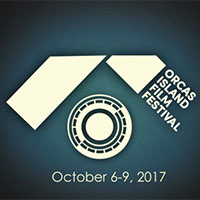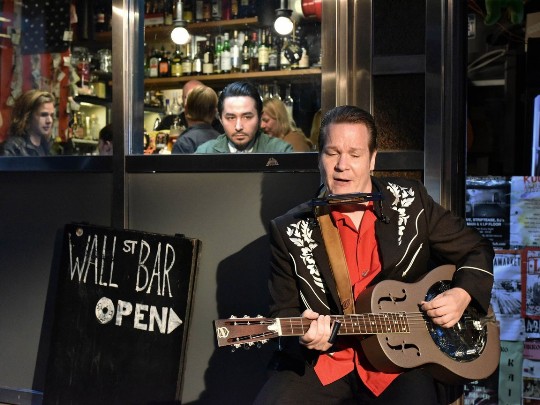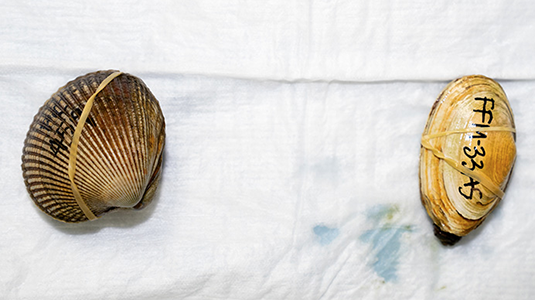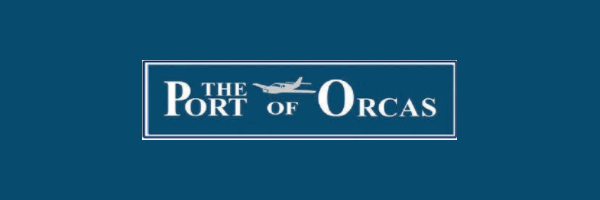a review by Jule Treneer
There is a game I like to play whenever I watch an Aki Kaurismäki film. At certain moments, if you squint a little, you can imagine you’re watching a classic example of European cinema from the 1950s. It’s not just the vintage aesthetic—all the funky clothes and cars and jukeboxes, which seem to recur in every one of the Finnish director’s films. It’s the whole look and feel of them. The stark lighting, the stilted dialogue, the stagey way that certain scenes are put together—it all draws upon some collective memory of black and white European film, which Kaurismäki knowingly reproduces with his flair for wry comedy and a fair amount of whimsy thrown in.
His latest effort, screened at OIFF earlier this month,”The Other Side of Hope,” is the second in a series following 2011’s “Le Havre” that critiques Europe’s increasingly inhumane and intolerant treatment of refugees. It’s the story of Khaled (Sherwan Haji), displaced by the unending war in Syria, who turns up rather strikingly in the first scene of the movie buried in the hold of a coal ship at the port of Helsinki. Wandering through town that night covered in soot, his dark figure is illuminated momentarily in the headlights of the immaculate black Checker driven by the film’s other main character with whom he will eventually cross paths, the tough but kind-hearted Wikström (played by Kaurismäki regular Sakari Kuosmanen). Yet it takes a while for the two men’s stories to ultimately tie together.
This is a story not so much about two worlds colliding together as it is about one world trying to pretend as though it has nothing to do with the other. Khaled’s misplaced hopes of seeking asylum are soon dashed. It turns out the bureaucracy, as Trotsky put it, caters only to itself. Refugees like him are run through an empty process with a foregone conclusion. Khaled presses on, driven by the unshakeable belief that he will someday be reunited with his sister, from whom he was separated at the Hungarian border. He’s mostly bemused when his caseworker asks him if he needs to “take a break” after testifying about his harrowing brush with death in Aleppo. It’s the caseworker, of course, that’s exhausted by the whole sham.
Meanwhile, outside the detention center, we follow Wikström down the familiar storylines of Kaurismäki’s Helsinki. Most of it revolves around the comically bad Golden Pint restaurant, which Wikström has only recently purchased with his poker winnings. While Khaled is given the bureaucratic runaround, Wikström and his hapless employees try to up their restaurant game and fail amusingly, before giving into the inevitable smoke-filled torpor of hosting rock bands. Indeed, you get the sense that, were it not for the introduction of Khaled and his ilk into the story, this world could continue on in a whimsical self-referential loop.
Of course, that’s how denial works. In Kaurismäki’s world, scruffy outsiders are always more likely to do the decent thing, although Wikström’s kindness when Khaled turns up on his stoop leads to complications and ugliness, which surface in the form of rightwing nationalist thugs. The film closes on an oddly unresolved note. It seems these two worlds will never reconcile, so long as one refuses to even recognize the other.
Jule Treneer is a writer and financial advisor. He is co-founder of the Orcas Island Lit Fest.
**If you are reading theOrcasonian for free, thank your fellow islanders. If you would like to support theOrcasonian CLICK HERE to set your modestly-priced, voluntary subscription. Otherwise, no worries; we’re happy to share with you.**










Just reading this article brings back the aching poignancy the film had on me.
What a waste of a Life, a “good” person, just trying to make Love work.